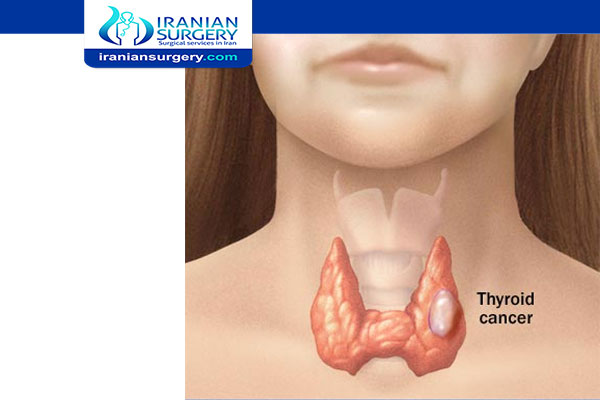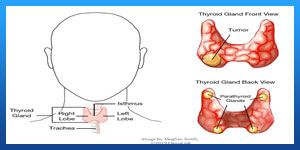Common side effects of thyroid cancer treatment

Thyroid Cancer Side Effects after Surgery
Risks and Side Effects of Thyroid Surgery

Some possible side effects are common to nearly all operations. These include:
. Numbness over the area
. Infection, for example, a wound infection or chest infection
. A blood clot or risk of bleeding
. Swelling in the area
Your healthcare team monitor you closely to check for these. You have treatment, such as antibiotics, if you need it.
Read more about : Thyroid cancer treatment
You may have other side effects following your thyroid surgery for example:
. Voice changes
After thyroid surgery some people have voice changes. Your voice may be hoarse or sound different. The thyroid gland lies close to your voice box (larynx). So surgery can damage the nerve to your voice box. This usually gets better within a few weeks.
It’s rare to have permanent changes. Your team might refer you to a voice therapist or speech therapist if you continue to have problems.
Read more about : Thyroidectomy scar
. A change in thyroid hormones
If you have had your whole thyroid removed, you will need to take tablets to replace the hormones that your thyroid would normally make. This is called thyroid hormone replacement.
The thyroid hormones are thyroxine (T4) and liothyronine (T3). You need one of these hormones to keep your body metabolism working effectively. You will need to take them for the rest of your life. Without the hormones, you would feel tired, gain weight, have dry skin and hair, and feel physically and mentally lacking in energy. Your doctor or specialist nurse will talk to you about which hormones you need to take and the correct dose.
You don’t generally need to take thyroid hormones if you have had part of your gland removed. Your remaining thyroid usually makes all the hormone you need. But you have blood tests to check that it is working well.
If you have had follicular or papillary thyroid cancer, the hormones may also help to stop the cancer from coming back. They stop your body from producing another hormone called thyroid stimulating hormone (TSH). TSH encourages these types of thyroid cancer cells to grow.
. A change in calcium levels
An operation on your thyroid gland could damage the nearby parathyroid glands. Or your surgeon might need to remove some of the parathyroid glands. The parathyroid glands control the levels of calcium in your blood.
Any damage could mean that these glands don’t work so well and calcium levels fall. If this happens, you will need to take calcium tablets and possibly extra vitamin D. This is usually a temporary side effect, but could be permanent in some people.
Read more about : Thyroid Cancer Treatment
. Lymphoedema
After your surgery it is normal to have some swelling close to the wound. This usually goes away after a few weeks as the wound heals.
If you had some lymph nodes in your neck removed, the swelling may continue to be there and sometimes it gets worse. This is called lymphoedema.
Tell your doctor if you continue to have swelling in your neck after a few weeks. You may need some more exercises to help the swelling go down
Read more about: Thyroidectomy types
Read more about: Thyroidectomy complications

